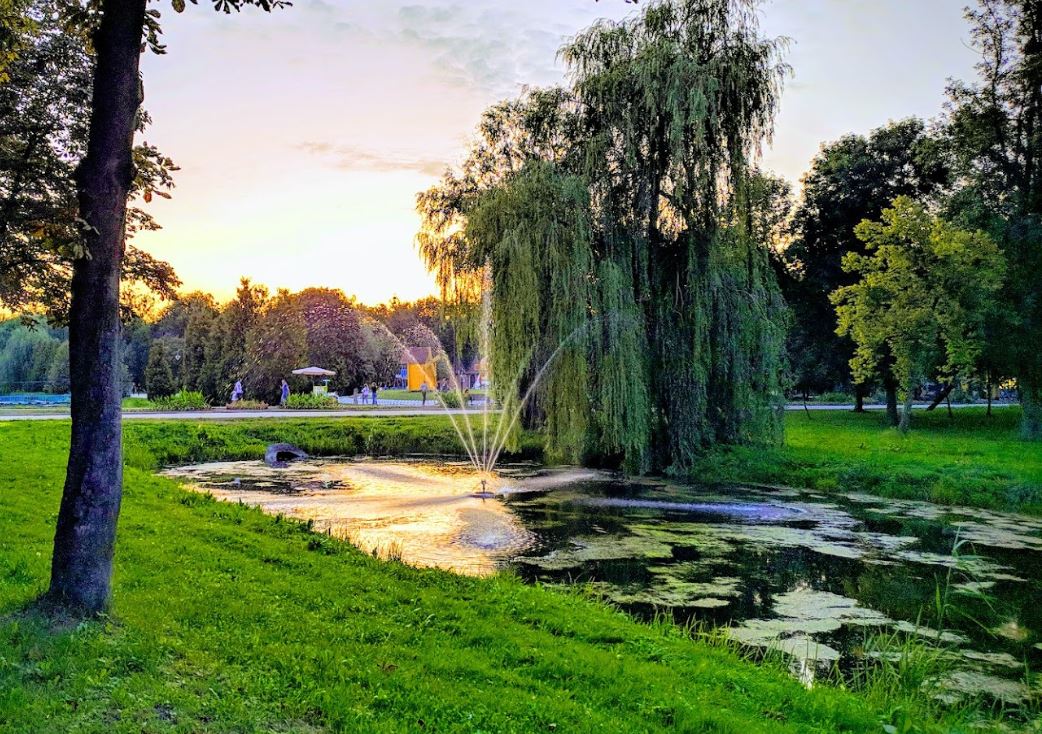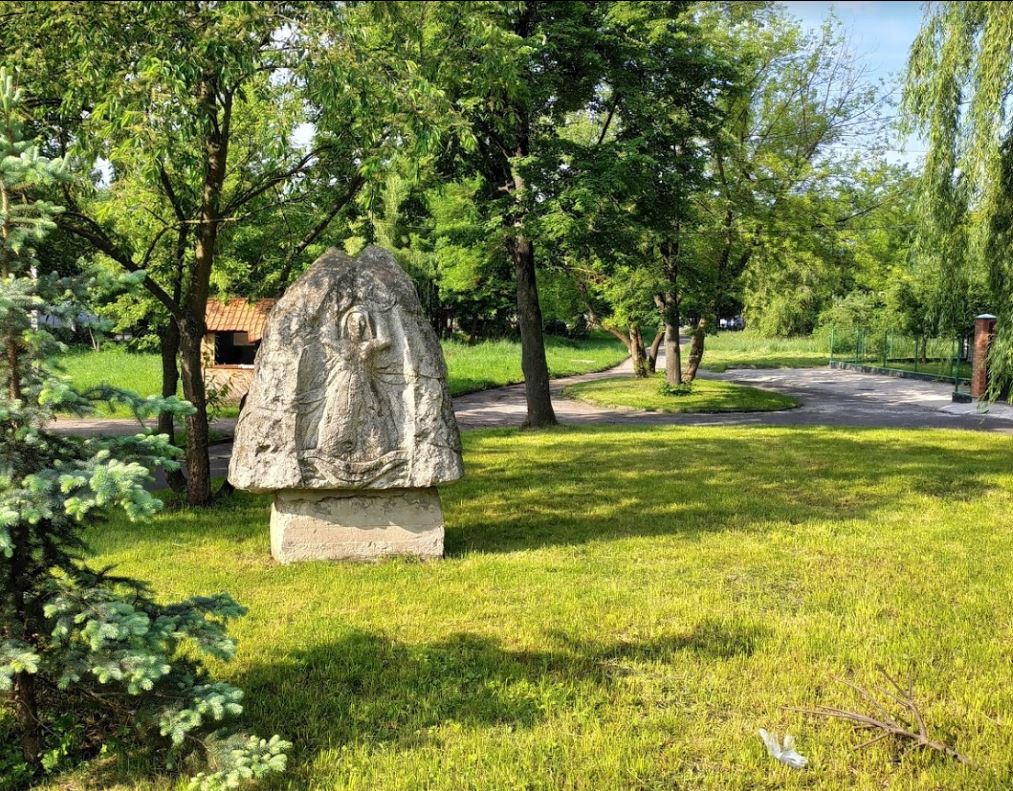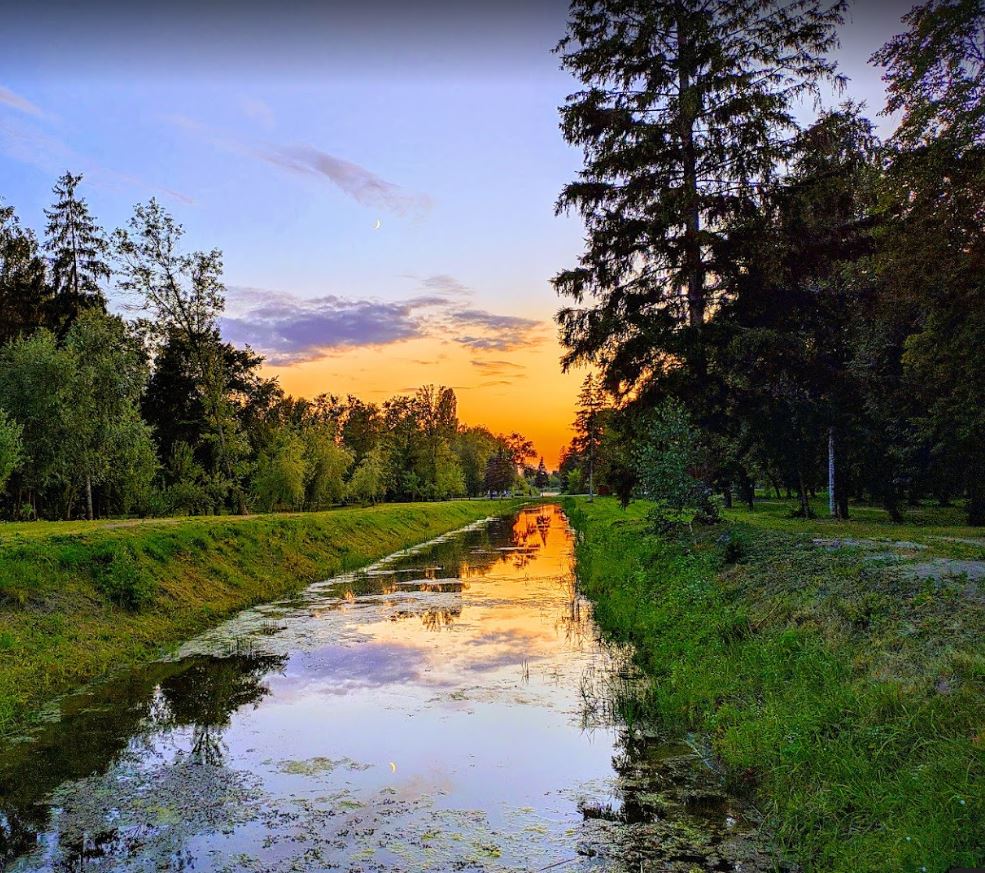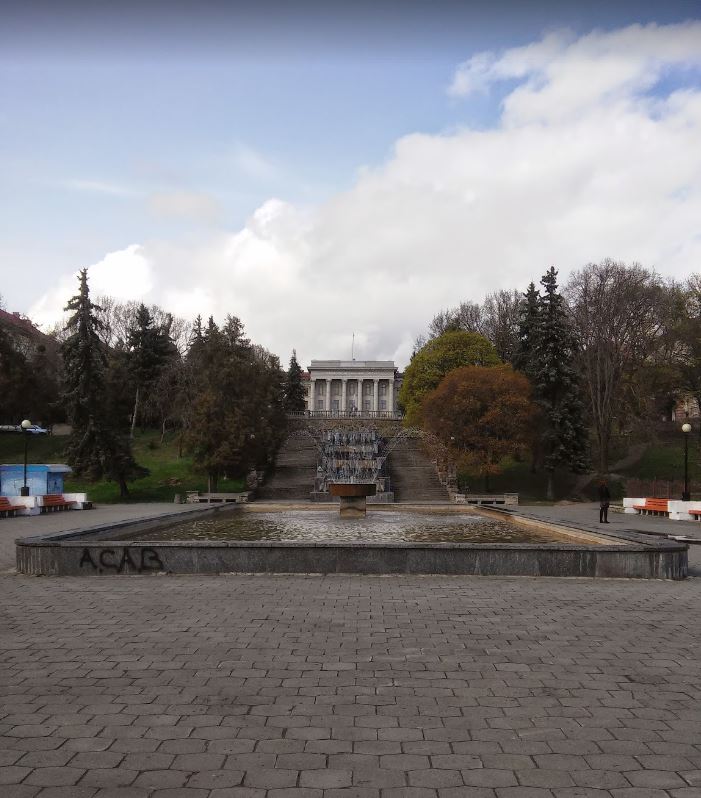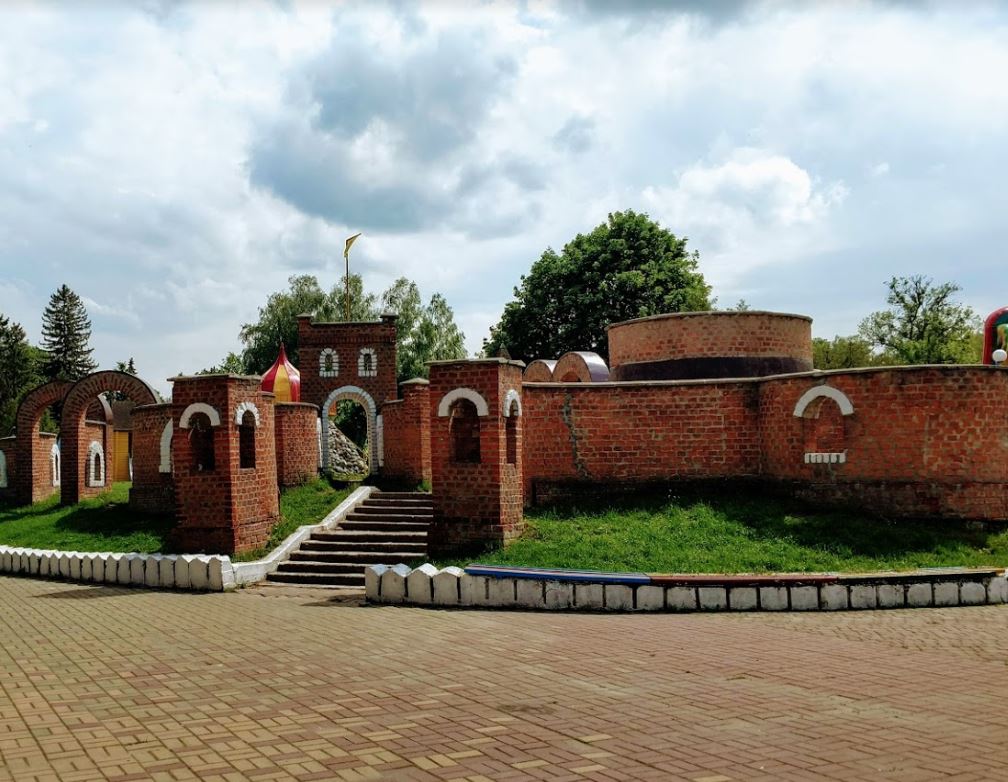Recreation facilities in the park:
Especially decorated alleys: "canopy alley", "lantern alley", "fairy alley" with sculptures of Nikolai Golovan
Family and infant friendly rides, including a 40 meter Ferris wheel
Rotonda Pop Scene
Lutsk Zoo
Bird Orchard Reserve
Lutsk racetrack
Child's city "miracle"
A dam along the Styr River, which runs along the path of the pedestrian bike
The beach and the pier on a stir river
Sports school "Spartacus"
Groups of commercial buildings (summer lands, sales trays)
Also on the grounds of the Evangelical Church "Grace"
a story
The present garden lands were initially wetlands. Due to the planning of the highway, the Glushets (one of the Styr Streams) started draining in 1926. Orchards and nearby hops were also planned. In parallel, a dirt dam was poured, and in 1933 a square was created in the drained area, which later became a park. In the city's general building plan in 1937, a new quarter of Lutsk was planned in the framework of the Joseph Novak project. The judge's workers' construction was completed before World War II and is located on Glushets Street
After the war, the theory began to flow periodically, and the street at the site of the Glushets River was paved with pavement and was called a youth. The new master plan for the construction of Lutsk in 1952 envisaged the creation of a park and exhibition platform in front of it, which together with the party's regional committee formed one division. Work began in 1961 on a project of a group of architects led by M. However, the main alley was at an angle to the axis formed by the regional commission and the observation deck, due to the neglect of landscape features. As a result, the entire park changed the site. The park itself opened in 1964 and was named after Yuri Gagarin.
Shortly after the opening, the Cosmos summer cinema, a dance floor, an archery fair, and an umbrella tower appeared. In 1971, construction of horseback riding, including a Ferris wheel, began. In the same year, the garden was renamed in honor of Lesya Ukrainka.
In the late 1970s, the Rotunda Film Concert Hall, capable of accommodating up to 1,200 spectators, was completed. The dance floor was built near attractions, and in June 1978 the zoo was opened. A children's racing track was built near the dam. Another large-scale construction was the Children's City "Miracle", which is managed by architect Jaroslav Matviyev. A "water station" for rowing, a sports complex "Spartak" and a sports base for "Workers' Reserves" were also built.
Over time, during the 1970s and 1980s, the park became overgrown and the banks of the Steyr River and drainage canals collapsed. In the 1990s, the pumping station failed to accelerate the wetlands of the park and the park itself declined. Later, some of the reasons were initial mistakes in the project and the expansion of the surrounding infrastructure.
During the 2010s, garden renewal began. There were chunks of old trees, planting little trees, and cleaning canals. The pumping station has been restored. In 2017, Rotonda cinema was rebuilt and installed inside the pool. Also in 2017 a major garden rebuilding process started: the central beach was cleared, the Stir River was directed under the FST Spartak building, and the stairs leading to Stir were restored. To prevent duckweed from draining channels, they were stored with white cupid and silver carp. During 2018, the main alleyways were rebuilt, paved (mostly paved), lighting installation, replacement of seats and dumps. Lantern Walk is equipped with unique lamps, sponsored by several Lutsk companies.
x
T
R
F
I
H
I
We have 16614 Parks Now ... The First and largest platform for green public parks
Центральний парк культури і відпочинку імені Лесі Українки
Центральний парк культури і відпочинку імені Лесі Українки
Hlushets' St, Lutsk, Volyn Oblast, Ukraine, 43000
Every Day : 24 Hours .
About Park
-
Preview
It is a municipal parkImportant Information
-
Every Day
24 Hours -
Park Area
600000.00 SQM -
Foundation Date
1/1/1964
-
Every Day
-
Intertainment Elements
Sports
Sitting places
Entertainment
Restaurants
Trips
Kids area
Multipurpose sports courts
Small amusement area
-
Main Elements
- Cleanliness
- Parking and public transport
- Green areas
- Open spaces
- Open paths for walking
- Toilets
- Attractions


